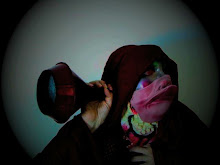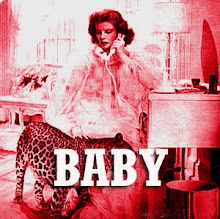During the early 30s a government survey compiled by eminent doctors created alarm and despair when it was pointed out that young people were listening to a strange type of music played by black people in the deep south.
This music called the BLUES was deemed to be the cause of the breakdown of the moral fibre amongst young people between the ages of 12 and 27 (the Irving Schallander social report on the working classes 1932)
whilst secret meetings went on late into the night (Hansard 1932) and government ministers became more and more agitated, the specialist police department SO19 at new Scotland yard followed and observed many thousands of young people and made notes and reports on their erratic behavior.
LCC schools were also consulted and it was deemed by parliament and some of the great thinkers of the day (Bertram Russell) that to attempt to stop the influx of 78RPM records of this type of music and the music sheets also available ,would simply drive the movement underground
some of the leaders of this new wave music were traced in the United States by the G men of Edward Hoover men such as Walter Bandycoot Edmunds, Blind Willie nelson and Thelonius Monk
the great minds came up with a plan itself a masterpiece and the blueprint of many modern social orders still in use today.
Outside night clubs, pubs, houses of ill repute and near to railway stations and tram stops and public toilets were sited the "Graham Triton " audio handset.
Music of the deep southern type was played remotely via these units using the return path of the GPO public telephone network.
In this way the Government of the day could control the music and monitor the tastes of the youth and those deemed to be in danger of persecution.
A notice was printed in the daily papers such as the Jamaican weekly gleaner the Memphis times and the Shetland and skerries news that a contest was to be made open to all.
You merely had to listen to the music at these street units and then sing along to the latest tune
after which an operator took your name and entered you into a free talent show where your voice would be heard on the radio to millions of others.
This allowed the government to easily build up a database of the fragile of mind, the intellectually challenged, the criminal types, and the vain and easily influenced.
The grand finals were held at that lovely old Edwardian music hall Farks hall.
On the first night 15 thousand people lined up to enter and listen the the competitors.
The first Farks hall talent show was deemed a roaring success and the proletariat of the day never realized how easily the government of the day had manipulated them.
Gradually new types of music were introduced by the use of large prizes and offers of fame, and the Blues movement became an isolationist movement listened to only by the devout few in small smoky clubs and watched over by SO19.
the original contestants have long departed this life but amongst older members of the London public the comment you got Farkes hall talent is still heard even today.
... how easily is our language molded .
This music called the BLUES was deemed to be the cause of the breakdown of the moral fibre amongst young people between the ages of 12 and 27 (the Irving Schallander social report on the working classes 1932)
whilst secret meetings went on late into the night (Hansard 1932) and government ministers became more and more agitated, the specialist police department SO19 at new Scotland yard followed and observed many thousands of young people and made notes and reports on their erratic behavior.
LCC schools were also consulted and it was deemed by parliament and some of the great thinkers of the day (Bertram Russell) that to attempt to stop the influx of 78RPM records of this type of music and the music sheets also available ,would simply drive the movement underground
some of the leaders of this new wave music were traced in the United States by the G men of Edward Hoover men such as Walter Bandycoot Edmunds, Blind Willie nelson and Thelonius Monk
the great minds came up with a plan itself a masterpiece and the blueprint of many modern social orders still in use today.
Outside night clubs, pubs, houses of ill repute and near to railway stations and tram stops and public toilets were sited the "Graham Triton " audio handset.
Music of the deep southern type was played remotely via these units using the return path of the GPO public telephone network.
In this way the Government of the day could control the music and monitor the tastes of the youth and those deemed to be in danger of persecution.
A notice was printed in the daily papers such as the Jamaican weekly gleaner the Memphis times and the Shetland and skerries news that a contest was to be made open to all.
You merely had to listen to the music at these street units and then sing along to the latest tune
after which an operator took your name and entered you into a free talent show where your voice would be heard on the radio to millions of others.
This allowed the government to easily build up a database of the fragile of mind, the intellectually challenged, the criminal types, and the vain and easily influenced.
The grand finals were held at that lovely old Edwardian music hall Farks hall.
On the first night 15 thousand people lined up to enter and listen the the competitors.
The first Farks hall talent show was deemed a roaring success and the proletariat of the day never realized how easily the government of the day had manipulated them.
Gradually new types of music were introduced by the use of large prizes and offers of fame, and the Blues movement became an isolationist movement listened to only by the devout few in small smoky clubs and watched over by SO19.
the original contestants have long departed this life but amongst older members of the London public the comment you got Farkes hall talent is still heard even today.
... how easily is our language molded .
found here














No comments:
Post a Comment